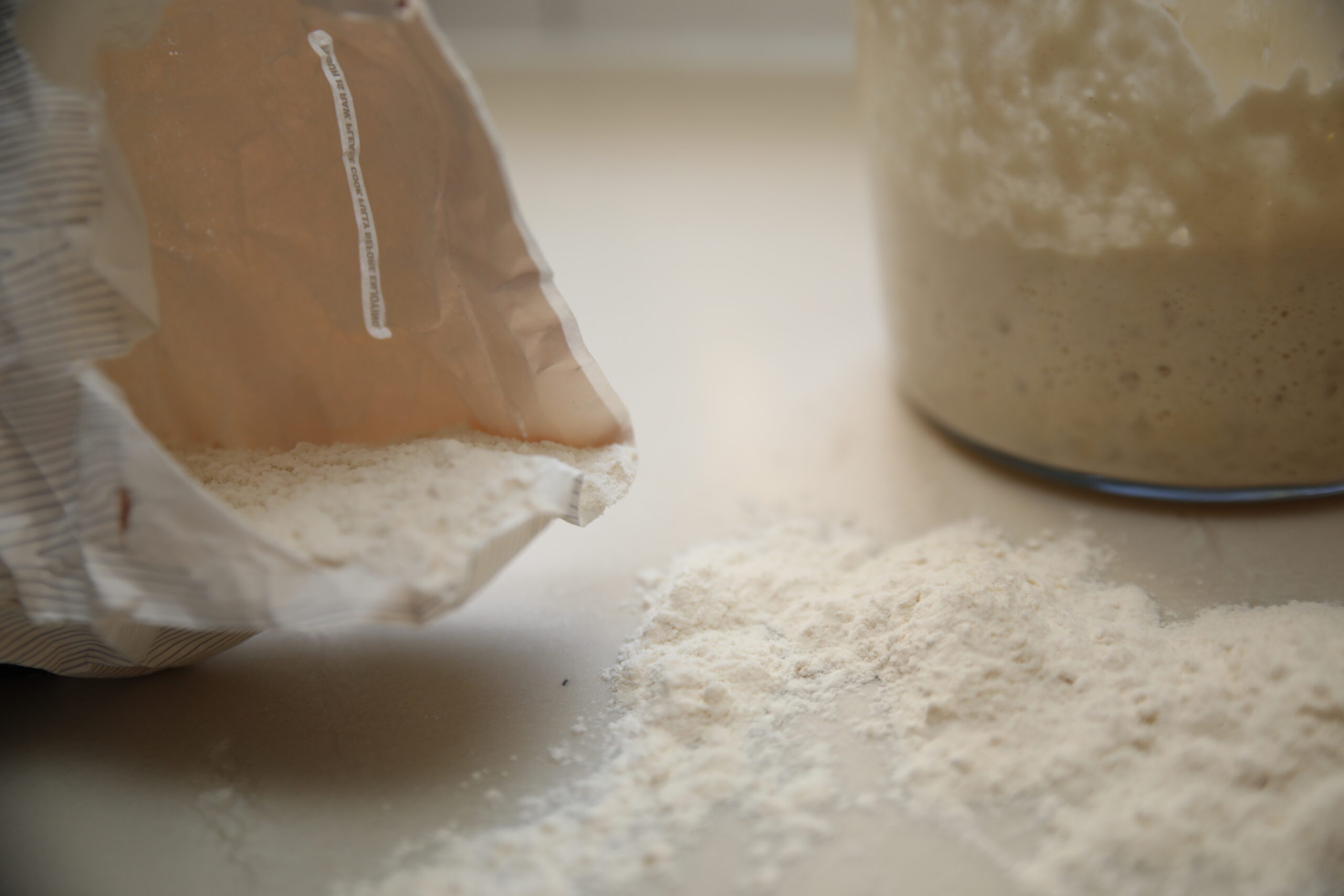Flour is the base of any sourdough bread, and picking the right one can make a huge difference in your bread’s texture, flavor, and rise. Whether you’re a newbie or an experienced baker, understanding the different types of flour can help you create the perfect loaf. Here’s a simple guide to the best flours for sourdough!
note: all links are affiliate links to support me and are at no extra charge to you!
1. Unbleached All-Purpose Flour
Great for: Beginners, soft bread, and everyday loaves
Unbleached all-purpose flour is a great choice for sourdough because it’s easy to work with and widely available. It creates a balanced texture—neither too dense nor too light—and has a mild flavor that works well for most recipes. It supports fermentation better than bleached flour, making it a solid option for those new to sourdough baking.
Why it’s good:
- Retains natural proteins for better gluten development.
- Supports strong fermentation (more active wild yeast).
- No chemical additives that can affect flavor or texture.
- Produces a more flavorful, naturally-colored loaf.
Why it’s not perfect:
- Slightly lower protein than bread flour, so less structure.
- Takes longer to develop strength compared to bread flour.
2. Bread Flour
Great for: A chewier, higher-rise loaf
Bread flour has more protein than all-purpose flour, which gives your dough more structure. This is the flour you’ll want if you’re aiming for that chewy texture and open crumb (those airy holes inside the bread). It also works well if you’re working with wetter doughs or prefer a higher-rise loaf.
Why it’s good:
- Higher protein = stronger dough and chewier texture.
- Great for airy bread with a good rise.
- Works well with wetter dough.
Why it’s not perfect:
- Can be tricky for beginners.
- Might have a stronger taste compared to all-purpose flour.
3. Whole Wheat Flour
Great for: Nutty, hearty bread
Whole wheat flour is made from the whole grain, so it gives your sourdough a rich, nutty flavor and more nutrients. It can make your loaf a little denser, but it’s a great option if you want that hearty, rustic vibe. You can mix it with other flours to balance the density.
Why it’s good:
- Adds flavor and nutrition.
- Perfect for a rustic, earthy bread.
- Packed with fiber and vitamins.
Why it’s not perfect:
- Makes the loaf denser.
- Needs more water to work well in dough.
4. Rye Flour
Great for: Tangy, flavorful sourdough
Rye flour has a unique tangy taste and is famous in traditional sourdough breads. It’s perfect if you love a stronger flavor and want to give your bread a little something extra. Rye also helps sourdough starters grow because it’s rich in sugars that feed the wild yeast.
Why it’s good:
- Great for a tangy, flavorful bread.
- Helps sourdough starter grow faster.
- Adds complexity to the bread.
Why it’s not perfect:
- Can make the bread denser.
- Often mixed with other flours for a better texture.
5. Gluten-Free Flour
Great for: People with gluten sensitivities
If you can’t eat gluten, you can still make sourdough! There are plenty of gluten-free flour blends (like rice flour, sorghum flour, and tapioca starch) that can work for sourdough. While it’s trickier to get the same chewy texture, it’s totally doable with the right mix of flours.
Why it’s good:
- Safe for gluten-free diets.
- You can experiment with different gluten-free blends.
Why it’s not perfect:
- Doesn’t quite match the texture of traditional sourdough.
- Takes some practice to get right.
Sourdough Starter Supplies
- Glass Jars: Store your starter in a wide-mouth glass jar for easy feeding.
- Dough Scraper: A bench scraper makes handling sticky dough much easier.
- Proofing Basket: For beautiful artisan loaves, use a banneton proofing basket.
- Kitchen Scale:Measuring by weight is key for perfect sourdough. I recommend this digital kitchen scale.
So, Which Flour Should You Use?
Ultimately, it comes down to what kind of bread you want to make! If you’re just starting out, all-purpose or bread flour will get you a great loaf. If you’re after a heartier, more rustic bread, go for whole wheat or rye. And if you need a gluten-free option, there are plenty of blends to experiment with.
Just remember: every flour has its own personality, so don’t be afraid to experiment and see what you like best. Happy baking!
